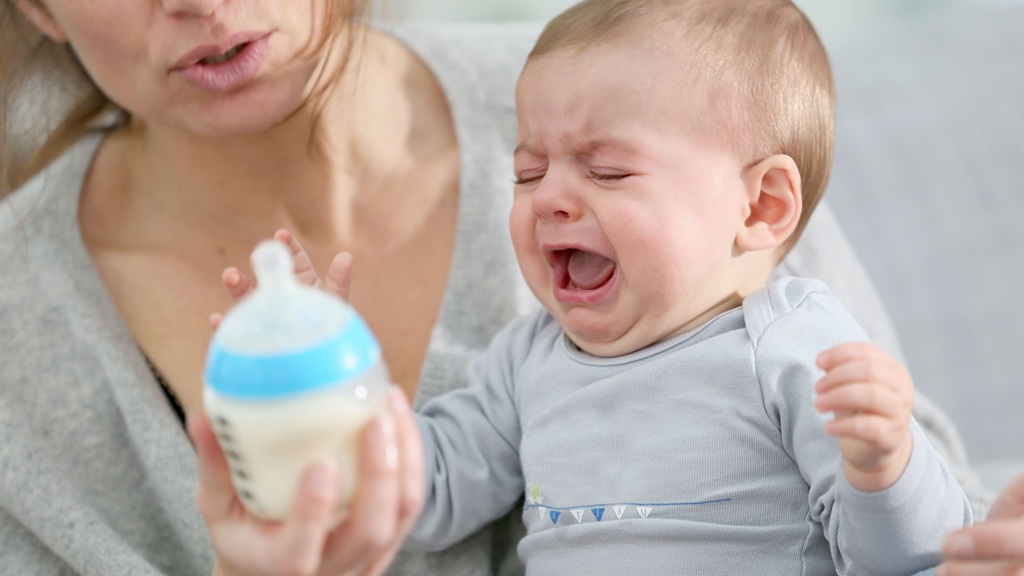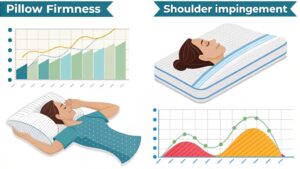Why Is Your Baby Refusing a Bottle After Breastfeeding Exclusively?

The journey of nurturing a baby is full of surprises, and one common challenge is when a baby refuses a bottle after breastfeeding exclusively. This behavior can be stressful for parents who are transitioning back to work or introducing alternate feeding methods. But don’t worry; understanding the reasons behind this reluctance and how to manage it will help you and your baby adjust smoothly.
In this article, we’ll explore why this happens, proven techniques to encourage bottle acceptance, and expert-backed solutions that work for parents worldwide. Whether you’re facing this issue for the first time or looking for fresh advice, we’ve got you covered. For further parenting tips, explore Probabyguide for reliable insights.
Why Do Babies Refuse Bottles After Breastfeeding Exclusively?
Babies are creatures of habit, and their preference for breastfeeding can result from comfort, familiarity, and bonding with their mothers. Here are some key reasons behind bottle refusal:
-
Comfort and Security with Breastfeeding
Breastfeeding isn’t just about feeding; it’s a source of comfort. When nursing, babies are soothed by the warmth, smell, and heartbeat of their mothers. Bottles, no matter how advanced, lack this emotional connection.
-
Preference for Breastfeeding Mechanics
Breastfeeding requires a different sucking technique compared to bottle feeding. Babies who are accustomed to the breast may struggle with the faster flow and firmer nipple of bottles.
-
Bottle Nipple Confusion
Babies who exclusively breastfeed often prefer the texture and feel of a mother’s nipple over an artificial one. Some may even reject bottles entirely due to unfamiliarity.
-
Timing of Introduction
Experts recommend introducing a bottle between 4 to 6 weeks of age if you plan to combine breastfeeding and bottle feeding. Introducing a bottle too early might cause nipple confusion, while waiting too long may make the transition harder.
-
Illness or Discomfort
Sometimes, a baby refusing a bottle could simply be related to teething, an ear infection, or another underlying discomfort. It’s important to rule out health concerns first.
Proven Tips to Help Your Baby Accept the Bottle
Now that you understand the reasons, let’s explore some actionable tips to encourage your baby to accept the bottle:
-
Choose the Right Bottle and Nipple
Invest in bottles and nipples that mimic breastfeeding. Look for slow-flow nipples with a natural shape, as they replicate the breastfeeding experience. Trial and error may be necessary to find the perfect match.
-
Let Someone Else Offer the Bottle
Babies often associate their mother with breastfeeding. Have another caregiver, such as a partner or grandparent, offer the bottle when you’re out of sight.
-
Experiment with Temperature
Babies can be picky about milk temperature. Warm the bottle to match the temperature of breastmilk straight from the breast, around 98.6°F (37°C).
-
Feed in a Calm Environment
Create a soothing atmosphere with dim lights and minimal noise. A calm baby is more likely to try something new.
-
Use a Breastmilk-Soaked Nipple
To familiarize your baby with the bottle, try dipping the nipple in breastmilk. This smell and taste may entice them to accept it.
-
Be Patient and Persistent
Transitioning to a bottle can take time. If your baby refuses, don’t force it. Take a break and try again later.
Practical Solutions for Working Parents
Returning to work often necessitates bottle feeding.
Here are tailored solutions for working parents to ease the transition:
-
Start the Transition Early
Begin introducing the bottle weeks before your return to work. Gradual exposure can help your baby adjust without pressure.
-
Maintain a Flexible Feeding Schedule
Work with your caregiver to establish a schedule that incorporates breastfeeding and bottle feeding. Consistency is key.
-
Invest in a Quality Breast Pump
Pumping and storing milk allows your baby to enjoy the benefits of breastmilk even when you’re away.
-
Use Scented Comfort Items
Leave a blanket or piece of clothing with your scent near the baby during feedings. This can provide a sense of security.
-
Check Out Other Parenting Guides
For additional feeding tips, check out https://probabyguide.com/how-to-change-a-poopy-diaper/ for practical advice on handling everyday challenges like diaper changes.
Common Myths About Bottle Refusal

Let’s bust some myths that often circulate among parents:
Myth 1: Your Baby Will Never Take a Bottle
It’s natural to feel discouraged, but with time and persistence, most babies eventually accept bottles.
Myth 2: Bottle Refusal Means a Preference for Mom
While bonding plays a role, bottle refusal is more about unfamiliarity than a deliberate preference for breastfeeding.
Myth 3: Only Formula Can Be Bottle-Fed
You can absolutely bottle-feed expressed breastmilk. In fact, many parents choose this option to retain the benefits of breastfeeding.
Related: How to Help Baby Sleep Longer at Night: Expert Tips for Restful Nights
When Should You Be Concerned?
While most cases of bottle refusal are temporary, consult a pediatrician if:
- Your baby is not gaining weight.
- They seem dehydrated (fewer wet diapers or dark urine).
- They consistently reject all feeding methods.
These could be signs of a deeper issue that requires medical attention.
FAQs
Why does my baby refuse the bottle after breastfeeding?
Your baby may prefer the comfort, familiarity, and mechanics of breastfeeding. It takes time for some babies to adapt to the bottle.
How can I make bottle feeding more appealing?
Choose a bottle that mimics breastfeeding, offer the bottle in a calm setting, and have someone else feed them.
When should I introduce the bottle?
Introduce the bottle between 4 to 6 weeks of age if you’re breastfeeding exclusively. This helps avoid nipple confusion while ensuring adaptability.
Can teething cause bottle refusal?
Yes, teething can make a baby fussy and less interested in feeding, including bottle feeding.
Should I be worried if my baby refuses all the bottles?
If refusal persists and affects their hydration or weight gain, consult your pediatrician for guidance.
Related: At what age can a baby use a baby rocker?
What if my baby only accepts breastfeeding?
Gradual transition, consistency, and patience are key. If necessary, explore alternatives like cup feeding under medical advice.
Conclusion
Having your baby refuse a bottle after breastfeeding exclusively can be challenging, but with the right strategies, you can overcome this hurdle. Remember, patience and persistence are crucial. Every baby is unique, so what works for one may not work for another.








